
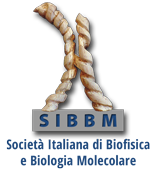





We are pleased to announce the upcoming National Ph.D. meeting that will be held at the Grand Hotel Salerno on 22-24 March 2018.
The National Ph.D. Meeting aims to give Ph.D. students a chance to present their research in a friendly and stimulating atmosphere. The programme includes oral communications and thematic poster sessions from selected abstracts, two keynote lectures delivered by Pier Giuseppe Pelicci and Luigi Naldini from Milan, and a lecture on emerging technologies sponsored by Leica entitled "Super Resolution & Nanoscopy - push the limit of diffraction playing with light".
As it has become a hallmark of these meetings, students play a fundamental role in the meeting organisation. The Ph.D. student committee will be fully responsible for the selection of oral communications from the submitted abstracts and for chairing all sessions.
Registrations and abstract submissions are accepted exclusively through this website starting from 10 January 2018 and will be possible until 16 February 2018.
ABCD and SIBBM members will benefit from reduced registration fees. Remember to be an early bird to benefit from discounted prices! Details about the different registration fees can be found on the information page.
We will be able to award travel grants, covering the registration fee, to a good number of participants. To be eligible, the following conditions must be met:
You may apply for the travel grant during the registration procedure. The number of travel grants assigned will depend on the number of requests.
Of note, the best oral communication will be awarded the Luca Daveggio prize (1.000 €) thanks to the generous donation by Luca’s parents, who will attend the award ceremony. Prizes are also envisaged for the best posters displayed and discussed during the meeting.
We hope that you and your students will join us in large numbers to ensure a productive exchange of ideas and a lively interaction among the participants.
We look forward to seeing you in Salerno!
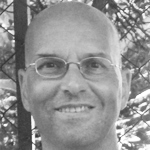
Claudio Brancolini
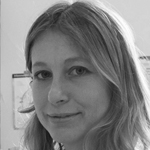
Sara Sigismund
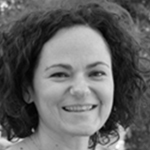
Tiziana Bonaldi
With the help of
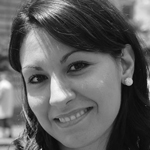
Francesca Ascenzi
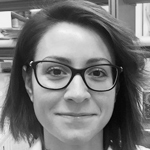
Sonia Ciotti
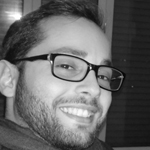
Francescopaolo Iavarone
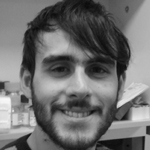
Luciano Nicosia
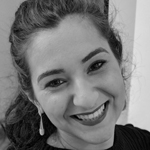
Irene Schiano Lomoriello
Certificates of Attendance are available through your personal myDOTT page.
Registrations & Abstracts:
EXTENDED TO
16 February 2018
Payments:
19 February 2018
CLAUDIO BRANCOLINI
University of Udine
SARA SIGISMUND
IFOM, Milan
TIZIANA BONALDI
IEO, Milan
Francesca Ascenzi
Sapienza University of Rome
Sonia Ciotti
University of Udine
Francescopaolo Iavarone
CNR-IGB, Naples
Luciano Nicosia
IEO, Milan
Irene Schiano Lomoriello
IFOM, Milan



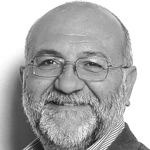 Pier Giuseppe Pelicci is Director of Research of the European Institute of Oncology (IEO) in Milan since 2015, chairman of the Department of Experimental Oncology of IEO since 1995 and full professor of general pathology at the University of Milan since 2004. He is also scientific director of the SEMM Foundation (European School of Molecular Medicine) and president of TTFactor Srl, the technology transfer company of IEO and IFOM (FIRC Institute for Molecular Oncology). He is cofounder and scientific advisor of the biotech holding Genextra which controls five biotech companies (Congenia, DAC, Tethis, Intercept and EryDel). At IEO, Pelicci is responsible for the strategic planning of the institute research programs, including basic, translational and clinical research. Pelicci has made seminal contributions to the study of leukaemia (identification/functional characterization of the PML-RAR and mutated-NPM oncogenes) and to the definition of the molecular basis of its targeted treatment with retinoic acid and histone deacetylase inhibitors. He has also contributed to the elucidation of the molecular basis of aging and aging-associated diseases (Shc protein family). More recently, he has been focusing on the biological and molecular characterization of normal and cancer stem cells, on the mechanisms of DNA damage, and on relapse acquired chemoresistance in acute myeloid leukaemia, using stem-cell based preclinical and clinical models of leukaemia and breast cancer, next generation sequencing technology and RNA interference approaches. His laboratory is also studying the effects of metabolism and specific checkpoint activation on tissue homeostasis, aging and cancer risk (novel signalling pathway involving p53, p66Shc and reactive oxygen species, risk factors such as overweight and obesity). Pelicci is member of different national and international societies, and was honoured with a number of prestigious awards (including several international prizes). He has an extensive publication record (445 peer-reviewed manuscripts, including 377 original research papers, 68 invited reviews and 29 book chapters) with H index = 100. Dr Pelicci is holder of 10 granted patents.
Pier Giuseppe Pelicci is Director of Research of the European Institute of Oncology (IEO) in Milan since 2015, chairman of the Department of Experimental Oncology of IEO since 1995 and full professor of general pathology at the University of Milan since 2004. He is also scientific director of the SEMM Foundation (European School of Molecular Medicine) and president of TTFactor Srl, the technology transfer company of IEO and IFOM (FIRC Institute for Molecular Oncology). He is cofounder and scientific advisor of the biotech holding Genextra which controls five biotech companies (Congenia, DAC, Tethis, Intercept and EryDel). At IEO, Pelicci is responsible for the strategic planning of the institute research programs, including basic, translational and clinical research. Pelicci has made seminal contributions to the study of leukaemia (identification/functional characterization of the PML-RAR and mutated-NPM oncogenes) and to the definition of the molecular basis of its targeted treatment with retinoic acid and histone deacetylase inhibitors. He has also contributed to the elucidation of the molecular basis of aging and aging-associated diseases (Shc protein family). More recently, he has been focusing on the biological and molecular characterization of normal and cancer stem cells, on the mechanisms of DNA damage, and on relapse acquired chemoresistance in acute myeloid leukaemia, using stem-cell based preclinical and clinical models of leukaemia and breast cancer, next generation sequencing technology and RNA interference approaches. His laboratory is also studying the effects of metabolism and specific checkpoint activation on tissue homeostasis, aging and cancer risk (novel signalling pathway involving p53, p66Shc and reactive oxygen species, risk factors such as overweight and obesity). Pelicci is member of different national and international societies, and was honoured with a number of prestigious awards (including several international prizes). He has an extensive publication record (445 peer-reviewed manuscripts, including 377 original research papers, 68 invited reviews and 29 book chapters) with H index = 100. Dr Pelicci is holder of 10 granted patents.
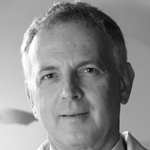 Luigi Naldini received his M.D. from the University of Torino, Italy in 1983 and his Ph.D. from the University of Rome in 1987, carried out post-doctoral work in the U.S.A. with Yossi Schlessinger (1987-89), was visiting scientist with Inder Verma and Didier Trono at the Salk Institute (1994-96), subsequently had independent appointments at Cell Genesys, California (1996-98) and the University of Torino prior to moving to Milan in 2002, where he is currently the Director of the San Raffaele Telethon Institute for Gene Therapy and Professor at the San Raffaele University. In his early career, he identified the ligand for the Met receptor with Hepatocyte Growth Factor. For the last 19 years, Luigi Naldini has pioneered the development and applications of lentiviral vectors for gene transfer, which have become one of the most widely used tool in biomedical research and, upon recently entering clinical testing, are providing a long sought hope of cure for several currently untreatable and otherwise deadly human diseases. Throughout this time he has continued to investigate new strategies to overcome the major hurdles to safe and effective gene transfer, bringing about innovative solutions that not only are being translated into new therapeutic strategies for genetic disease and cancer but have also allowed novel insights into hematopoietic stem cell function, induction of immunological tolerance and tumor angiogenesis. He has published 185 papers in international journals (total Impact Factor 1,905 with average I.F. 10.53 per paper), which have been cited >20,500 times (since 1996; Scopus “h” index: 68). He is the current President of the European Society of Gene and Cell Therapy, member of EMBO since 2008, recipient of an ERC Advanced Investigator Grant and was awarded the Premio Sapio for Italian Research in 2012.
Luigi Naldini received his M.D. from the University of Torino, Italy in 1983 and his Ph.D. from the University of Rome in 1987, carried out post-doctoral work in the U.S.A. with Yossi Schlessinger (1987-89), was visiting scientist with Inder Verma and Didier Trono at the Salk Institute (1994-96), subsequently had independent appointments at Cell Genesys, California (1996-98) and the University of Torino prior to moving to Milan in 2002, where he is currently the Director of the San Raffaele Telethon Institute for Gene Therapy and Professor at the San Raffaele University. In his early career, he identified the ligand for the Met receptor with Hepatocyte Growth Factor. For the last 19 years, Luigi Naldini has pioneered the development and applications of lentiviral vectors for gene transfer, which have become one of the most widely used tool in biomedical research and, upon recently entering clinical testing, are providing a long sought hope of cure for several currently untreatable and otherwise deadly human diseases. Throughout this time he has continued to investigate new strategies to overcome the major hurdles to safe and effective gene transfer, bringing about innovative solutions that not only are being translated into new therapeutic strategies for genetic disease and cancer but have also allowed novel insights into hematopoietic stem cell function, induction of immunological tolerance and tumor angiogenesis. He has published 185 papers in international journals (total Impact Factor 1,905 with average I.F. 10.53 per paper), which have been cited >20,500 times (since 1996; Scopus “h” index: 68). He is the current President of the European Society of Gene and Cell Therapy, member of EMBO since 2008, recipient of an ERC Advanced Investigator Grant and was awarded the Premio Sapio for Italian Research in 2012.